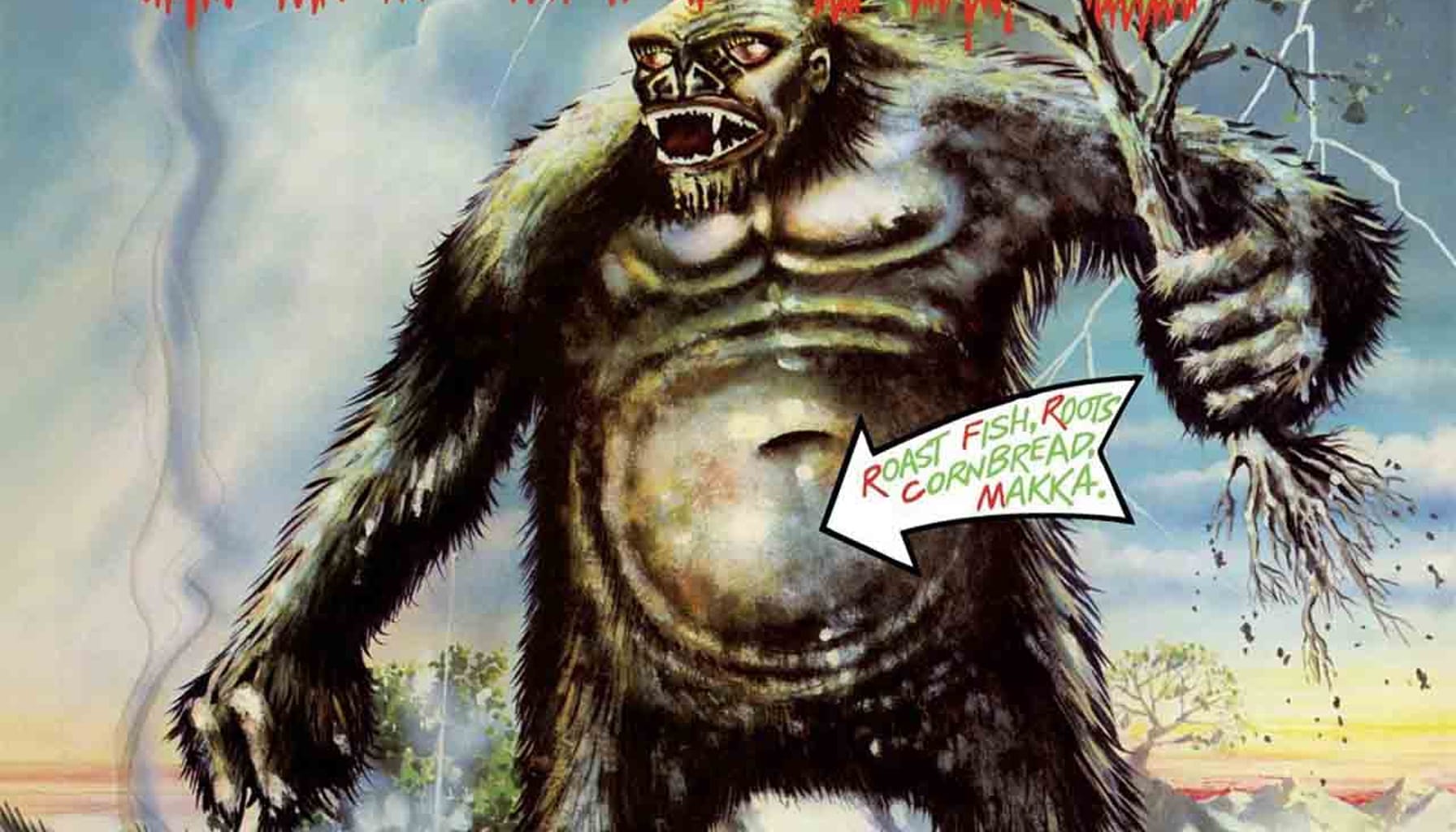Blindspotting: The Upsetters, "Super Ape"
Fixing musical blind spots, one album at a time

The Legacy: Attempts to bring about musical greatness by uniting players at the peak of their craft are, as often as not, doomed to failure. This happens for a variety of reasons, arguably chief among them ego; as a general rule, when cool people come together to do cool shit, it really only works if they're doing it because time and/or circumstance has taught them that it feels right when they join forces.
So it was with the Upsetters. The short version of their tale is that they were the house band for Lee "Scratch" Perry at his Black Ark Studios during most of the 1970s; the longer version is, well, longer, but the gist is that these guys fell together a chapter at a time before getting to the part of the story where they were the best band making the best music at the best studio for the best producer. If you're into dub or reggae — and I'm certainly not making any personal claims in that direction — then you are no doubt intimately familiar with the records in question. Me? I've only listened to Super Ape, albeit about a hundred times, all over the last couple of weeks.
This record was suggested for the series by Friend of Jefitoblog Tim Ryan, whose good-natured running gag with me has always been that I think he's a hipster who doesn't know how to have fun and he thinks all I do is sit around listening to Toto. The truth is very different, of course, although I'm not sure I'll ever appreciate Sonic Youth the way he does, and his tolerance for reggae will probably always far surpass my own. All that being said, I was eager to dive into Super Ape, because a Tim Ryan recommendation is always worth investigating, and I have long been well aware that my anti-reggae biases — painfully cultivated on assorted college campuses where the strains of Bob Marley's Legend were perpetually synonymous with sleepy-lidded morons playing hacky sack in the quad — were overdue for a lengthy interrogation.
First Impressions: I could never have guessed how lengthy, though. It isn't uncommon for me to need to spend a day or two with a Blindspotting record while I let the music marinate into a post, but for the longest goddamn time, I couldn't figure out what in the world I'd ever have to say about Super Ape. Which is not to say I found the listening experience unenjoyable; far from it. It's more that the music was so far removed from my personal lexicon that trying to comment on it seemed mildly impossible.
At first, anyway. The more time I spent with Super Ape, and the more I was able to settle into its grooves, the more familiar they seemed. As a producer, Perry's greatest trick was emphasizing the engineer. Engineering a session is a somewhat thankless job that, in the wrong kind of studio, can fall to a hapless intern who can't find any other way of figuring out how all those fucking knobs work. Really, though, the engineer has a whole bunch of power — power Perry wielded to pioneer a dense, earthy web of sound that emphasized rhythm at the expense of pretty much everything else. This is not to say that his production techniques were anything other than brilliantly inventive, although I might balk at the perceived wisdom of burying tape reels in dirt and/or misting them with various bodily and/or alcoholic fluids. But the way his sessions were engineered is probably the real secret sauce that has cemented Black Ark's exalted place in musical history.
Well, that and the fact that it fucking burned down. Nothing like going out on top to make people miss you.
I digress. The point is that for a long time, I was frozen by my focus on Super Ape's spot in the dub reggae firmament, and the more I scrambled to find some semblance of anything to say about a reggae record, the more lost I felt. But eventually, I started thinking about why I enjoyed listening to this album anyway, and I realized it came down to the fact that Perry's webby, diffuse sound works because it's all held together by the iron spine of the groove. The reason this stuff can be so meditative, even if you're a frat boy with zero spiritual connection to the songs, is that the groove keeps you locked in whether or not you understand the rest. Much of Perry's palette feels like it was floating in space, but not the groove. Never the groove.
To put all this more succinctly, as I eventually texted Tim: The Upsetters were like the Meters, only through a haze. That's a language I speak.
Favorite Song: Gotta go with "Black Vest," and the horn section that sounds like it was recorded in the same elevator shaft where Simon & Garfunkel recorded percussion for "The Boxer."
